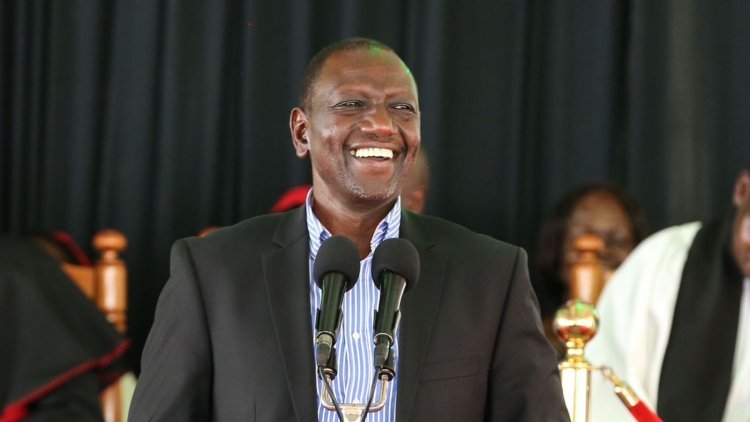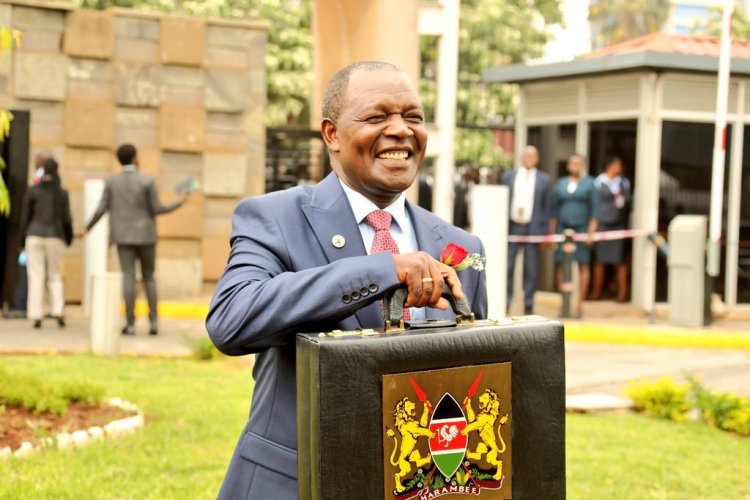3 Things Ruto Got Wrong In 2023/24 Budget- TIFA Report
In terms of the housing levy, seven out of 10 Kenyans voiced their opposition to Ruto's pet project with more than half believing that they will not get a house in the event they contribute.

A report released by Tifa Research on Tuesday, July 4 highlighted Kenyans' views on the worst provisions of the 2023/24 budget, the first under President William Ruto.
The survey, which highlighted economic issues affecting the country, highlighted the increase in Value Added Taxes (VAT) on petroleum products from 8%-16%, the increase in tax on basic foods and the housing levy as the worst provisions of the budget (24 per cent and 10 per cent each) respectively.
In terms of the housing levy, seven out of 10 Kenyans voiced their opposition to Ruto's pet project with more than half believing that they will not get a house in the event they contribute.
69 per cent of Kenyans expressed their opinion against the housing levy which will see 1.5 per cent of an employee's gross salary deducted each month and a similar percentage matched by the employer and 54 per cent believe that they will not get a house even if the deductions take place.

An illustration of the Affordable Housing Programme by Boma Yangu Initiative under the National Housing Corporation. /BOMA YANGU KENYA
"Expectations that those who pay the new housing levy will ever get a house are quite the most, with nearly five times as many of all Kenyans certain that they will not as compared to those who are certain that they will (54% vs. 11%).
"Such expressed expectations are markedly shaped by political alignment, however, with five times more Government supporters certain they will get a house as compared to Opposition supporters (20% vs. 4%). Still, not all Opposition supporters hold such negative expectations (only 70%)," read the report in part.
Furthermore, the likelihood of Kenyans paying the housing levy was stagnant in terms of expectation, with the only exception being those earning more than Ksh20,000 every month.
"Among those currently earning nothing, one-quarter have such an expectation (25%), while only slightly more than twice that proportion (59%) in the highest income group do so. This latter (and modest) figure may be explained by the fact that only those in the formal sector (and whose employers will be obliged to match their 1.5% contribution) fall within its mandatory-deduction category," added the report.
Budget Provisions
In terms of the budget, only a modest minority of Kenyans identified any “best” provisions of the new Budget when invited to do so (21%), with support for the education sector which benefited from an allocation of Ksh628.6 billion, 17 per cent of the total budget.
By contrast, a clear majority mentioned a provision they consider as “worst” (56%), with the tax on all petroleum products being by far the leading category (24%).
In terms of commodities that most Kenyans consume, they are most aware of price increases for unga, sugar and petroleum products since the Ruto government assumed office (61%, 51%, and 34%, respectively).
Cost of Commodities
"At the same time, only a handful of Kenyans are unaware of any products whose prices have not risen (7%).
"By contrast, more than three-quarters cannot identify any products whose prices have decreased during this same period (78%). Given that the country’s rate of inflation was above 9% during the latter part of last year and only just below that figure during the first half of 2023, this is not surprising," the report continued.
State of Employment
The survey went on to reveal that nearly one-third of Kenyans who are now jobless have never been employed (31%), with some others now jobless having worked in the past (8%). Most of those working are self-employed (29%), with only about one in ten employed full-time (11%).
Most of those working are self-employed (29 per cent), while 11 per cent work on a full-time basis.
According to the survey, 13 per cent of Kenyans earn between Ksh10,000 and Ksh20,000 while ten per cent account for those who earn between Ksh20,000 and Ksh50,000.
On the other hand, three per cent earn above Ksh50,000 and 24 per cent noted that they earn below Ksh10,000. 38 per cent stated that they did not draw any salary in 2022.

Treasury Cabinet Secretary Njuguna Ndung'u at Parliament Buildings on Thursday, June 15, 2023. /PARLIAMENT OF KENYA






